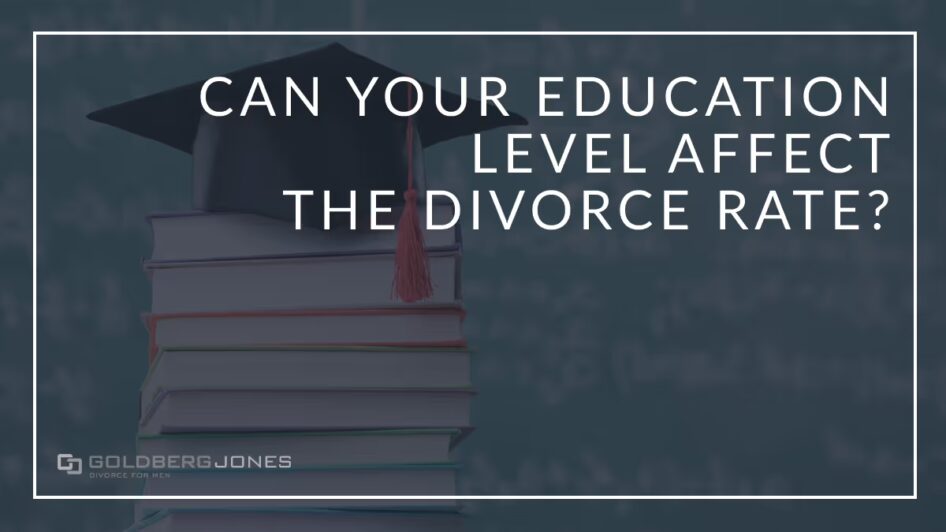Education plays a big role in most people’s lives in the United States. We go through a decade-plus of compulsory schooling, then a substantial majority opt for college.
According to statistics from the U.S. Department of Labor, in 2019, 66.2% of high school graduates aged 18 to 24 were enrolled in college or university. And at least one person believes education impacts divorce and divorce rates.
Can Your Education Level Affect The Rate of Divorce?
Eli J. Finkel is a psychologist and professor at Northwestern University in Chicago. He conducted extensive field and laboratory research on marriage.
You could say he wrote the book on the subject. Because he did. Namely, the recent tome, The All-or-Nothing Marriage: How the Best Marriages Work. In his work, he investigates the institution of marriage throughout history, including in modern-day society.
Promoting his book, Finkel spoke to Business Insider magazine, where he focused on the one type of union he considers the most likely to end in divorce. Based on his research, he believes that marriages between people with lower levels of education are more likely to break down. He says:
“[P]eople who don’t have a high school degree, people who are relatively uneducated have a higher divorce rate than ever, and a lower marriage rate, and when they are married, the marriages tend not to be as satisfying.”
On the other hand, he found, “[A]mong people who are college-educated, the divorce rates have actually plummeted since about 1980 [where the number peaked].”
Are You Doomed To Divorce If You Don’t Have A Degree?
Does this mean that you’re doomed to divorce if you have less education? Not necessarily.
Even Finkel himself doesn’t believe this means couples with less education must ultimately divorce, or that those with college degrees will live in wedded bliss forever. There are plenty of examples of doctors with crumbling marriages and high school dropouts who live happily ever after.
Finkel clarifies what he means, saying:
“What I think is going on is it’s really difficult to have a productive, happy marriage when your life circumstances are so stressful and when your day-to-day life involves, say three or four bus routes in order to get to your job.”
From his comments, he believes marital troubles more often boil down to economics rather than just education.
Financial Woes
Financial woes stemming from a lack of education often negatively impact marriage and marital stability.
Couples frequently cite money trouble and the strain it causes relationships as a trigger behind the divorce. It’s far from the only one, but it pops up in many cases.
But again, there isn’t a 100% correlation. Not every college graduate lands a high-paying job. People with advanced degrees also often worry about money. And plenty of folks with less formal education at colleges or universities make a good living.
More than anything, this study reveals a larger pattern. Not every situation automatically fits into the mold, but enough do that it’s worth consideration. Marriage is already tough; this one factor often makes it more difficult. Finkel simply believes that his research shows that education presents additional challenges and contributes to divorce.
Related Reading: How to File for Divorce in Washington
